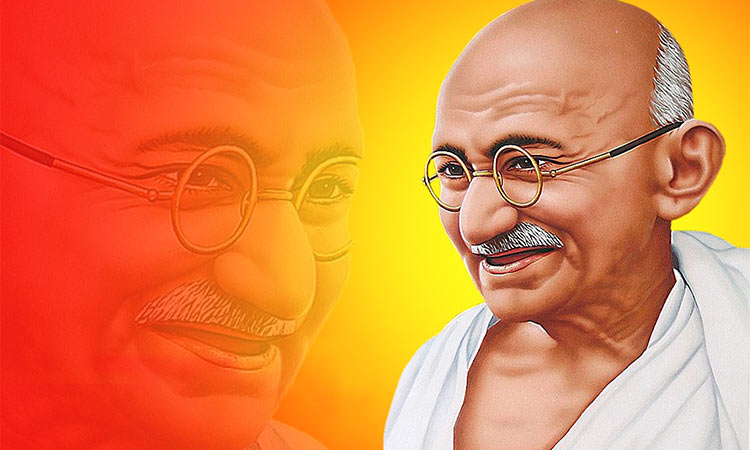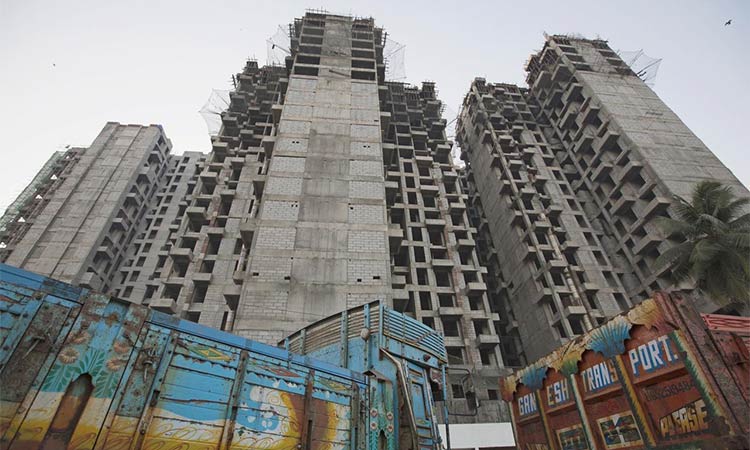How relevant are Gandhi’s teachings today?
BRP Bhaskar

As India and the world mark the 150th birth anniversary of Mohandas Karamchand Gandhi, which falls on Wednesday, it is not unreasonable to ask how relevant his teachings are today.
He lived an epic life during which he grew from a rather unsuccessful lawyer to an unusual mass leader who electrified his followers to a point where many were willing to die for the cause of freedom and enraged his critics to a point where some of them conspired to kill him.
When an assassin’s bullets felled Gandhi, Albert Einstein, one of the greatest minds of his time, said, “Generations to come will scarce believe that such a one as this ever in flesh and blood walked upon this earth.”
Gandhi’s transformation from lawyer to leader began in South Africa, where he had gone to do legal work for an Indian businessman. There he received a rude lesson in racism when he was bundled out of a First Class rail compartment because he wasn’t white.
That experience cured him of the belief that his British education had made a difference to his racial status. But he remained an admirer of Britain and its ways.
He organised Indian immigrants in South Africa and agitated peacefully for a fair deal. In the process, he became conscious of the religious, linguistic and cultural differences among Indians and the need to overcome them for effective joint action.
All through his South African days Gandhi remained an admirer of the West. When a tribe took up arms against the whites, he offered to mobilise an Indian ambulance corps to serve wounded white soldiers. The South African government told him they already had an ambulance unit but the tribesmen had none and he should help them.
In his autobiography, My Experiments with Truth, Gandhi says he told the tribesmen that it was their good luck that the whites were ruling them!
His unconventional agitations in Africa attracted Western media attention and information about them reached India, winning him many admirers before he returned home in 1915 at the age of 45. On meeting him, the Nobel Prize-winning poet Rabindranath Tagore hailed him as a Mahatma (great soul) and adoring millions endorsed it.
Notwithstanding Gandhi’s lack of sympathy for the aspirations of the blacks, Nelson Mandela in Africa and Martin Luther King Jr in America owned him up as their guide and endeavoured to follow the path of peace and non-violence he had shown.
His faith in Western virtues still intact, the first thing Gandhi did on his return was to aid Britain’s World War I effort by helping in the army’s recruitment drive. He believed when the war ended a grateful Britain will reward India with the status of Dominion, which the white colonies had.
About 1.3 million Indians saw active service during the war. They were deployed in Europe, Africa and Asia to defend Britain’s imperial interests. About 74,000 of them were killed.
The Indian army played a critical role in Britain’s victory. But India did not become a Dominion. Instead, it saw an unprovoked firing on peaceful protesters in Jallianwala Bagh, near Amritsar, in which about 400 people were killed.
Gandhi called a nationwide strike to protest the massacre. The response it evoked proclaimed the emergence of a leader with an appeal across the country. Less than a decade after his return from Africa, he was the tallest leader of the Indian National Congress, which was spearheading the freedom movement.
Gandhi gave high priority to Hindu-Muslim amity but reluctantly acquiesced in the partition of the subcontinent. When communal riots broke out he devoted his energies to putting out the flames and restoring peace. That angered a Hindutva group and prompted it to plot his murder.
Gandhi took up the issue of caste discrimination but never rejected the concept of “Chaturvarnya” on which the inhuman system rests. In recent years Dalit groups in India and some black groups in Africa have re-evaluated Gandhi’s record in the light of the principle of equality.
In Gandhi’s time, environmental protection was not a live issue. But one of the popular slogans of the environment movement today is a Gandhi quote: “The world has enough for everyone’s needs, but not everyone’s greed.”
Prime Minister Narendra Modi, whose Bharatiya Janata Party subscribes to the Hindutva ideology, today often invokes Gandhi’s name in his speeches. He also gives him credit for his government’s Swatch Bharat (Clean India) programme.
Some of Gandhi’s ideas certainly call for re-evaluation. Some others demand re-validation. These are processes that must go on.
Beneath the simplicity Gandhi projected was a complex personality. There is enough in his legacy for each gneration to find its own Gandhi, depending upon its interests.-n Gulf Today, Sharjah, September 30, 2019
